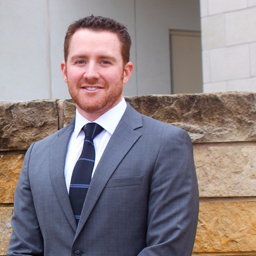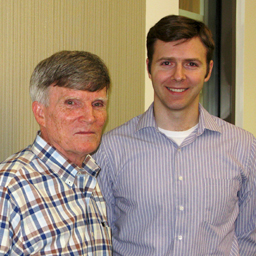
Jindal School senior Jordan Matheney recently finished in second place in the Fall 2016 CAPSIM Foundation Challenge, a simulation competition that tested contestants’ ability to successfully run a company long term. He demonstrated world-class management skills amid a field of more than 570 students from 180 universities in more than 13 countries who participated in the fall challenge.
It was the second year a Jindal School student finished in second place in the challenge, which is sponsored and run by CAPSIM, a Chicago-based business simulation technology and services firm. The challenges are open to students who are “alumni” of CAPSIM simulation courses.
As an accounting major, Matheney learned how to run the business simulation in the Strategic Management (BPS 4305) capstone class taught by Professor Larry Chasteen. “The class helped me learn about setting and reaching goals for a company, and trying to be a market leader,” Matheney says. “In the competition, you need to have different products at different price points to capture market share. The class helped us to understand how to approach things like that.”
Matheney decided to enter the competition because he felt it would further expand his ability to identify and make big-picture decisions,” an area he wanted to grow in. “The company ‘you run’ in the competition is a manufacturer, and you make decisions in areas like purchasing capacity, automation and employee training,” he says. “It was eight hours long, each hour representing one year in business.”

Matheney had some assistance beforehand from one who has been there, John Setty, a 2015 Executive MBA alumnus, who was JSOM’s second-place finisher last year. “The biggest piece of advice he gave me was to use my time wisely,” says Matheney, who is slated to receive his undergraduate degree this month and his graduate degree at the end of the Summer 2017 semester. “He said it was important to have a plan.”
The biggest challenge to Matheney was that there was a recession in the first three years represented in the competition. “It was about thinking about where to put money that would allow the company to succeed in the long run,” he says.
Simulation Success
Why have the JSOM challengers fared so well?
“I think it’s partly because students really embrace the simulation format and see it as a chance to learn about the risks and opportunities of business but in a safer way,” Chasteen says. “It’s exciting for many to see the effect scenarios can have.”
Matheney, who will be interning this summer in Richardson at BlueCross BlueShield of Texas with a focus on internal auditing, says he is definitely up for helping a competitor try to continue the streak of top finishes for JSOM. “The class and the competition help you to think on a deeper level,” he says. “It makes business exciting.”
